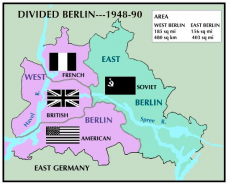
Europe as a whole is considered by the majority of scholars, in this context, as though it is a new continent brought to prominence by its centrality, hosting of both World Wars and integration into the superpower blocs in the early 20th Century. Grosser notes however that 1945 was not, as it is so often considered, ‘Year Zero’, and that European powers had been establishing their own identities in the 20th Century alongside the rise of the US and USSR. Indeed Germany had been the main military threat in Europe for a century and nations such as Britain, France and the Netherlands had enjoyed prosperous Empires in the late 19th and early 20th Century whilst the US remained isolated and the USSR had yet to overthrow its Tsar.
Following the turmoil of two world wars within a few decades and the effective collapse of many great European powers there was a shift in political alignment in Europe and many nations began to swing to the left before and during the Second World War, several years before the USSR expressed control over Eastern Europe and ‘enforced’ a Communist ideology. Indeed Grosser argues that a European dimension is noticeable particularly during the Second World War as many Western European nations including Britain, France, Italy and Belgium all saw a rise in socialist thoughts and practises. If one consults a war time newspaper or poster there is a heavy emphasis on everyone playing their part and contributing towards the war effort so capitalism is arguably less useful as an ideology than socialist thought in war time when the rich and the poor are all fighting for the independence of their homes.
In contrast to this Spain and Portugal entertained fascist dictatorships in this period with Franco’s regime in Spain and Antonio de Oliveira in Portugal but both are further evidence that European nations controlled their own political stance. The United States may have backed the allied forces in Western Europe during the war (albeit only after Pearl Harbour) but they did not or perhaps could not dictate their political compass. This is not to say however that Western Europe became Communist during the Second World War but rather that a middle ground between Communism and Capitalism was largely established. It was called Christian Democracy and became popular in the 1940s particularly in Germany, Belgium, Italy and France; named Mouvement Republicain Populaire (MRP) in France.

0 Comment:
Be the first one to comment on this article.